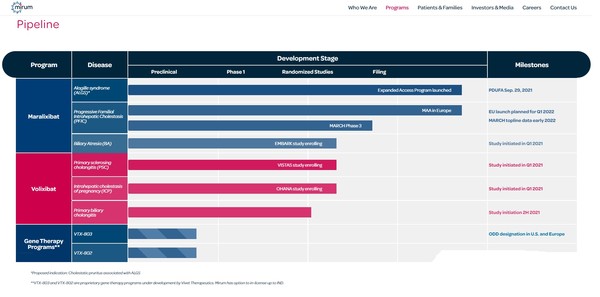GC Pharma said Tuesday that it has signed a monopoly license agreement with Mirum Pharmaceuticals to develop and commercialize Maralixibat, a new drug to treat rare liver diseases in children.
Mirum is conducting clinical trials and applying for permits in the U.S. and Europe for the Maralixibat indications for Alagille syndrome (ALGS), progressive familial intrahepatic cholestasis (PFIC), and biliary atresia (BA). For ALGS and BA, there are no treatments except for liver transplants.

ALGS is a rare genetic disorder where the gall bladder in the liver decreases and the bile stagnates. In PFIC, bile stagnates due to congenital disability of protein in liver cells that helps remove bile. BA is caused by damaged or deformation bile ducts that act as an exit of the liver, which blocks the whole or part of the liver.
In 2019, Maralixibat won the breakthrough therapy designation from the U.S. Food and Drug Administration to treat the pruritus of ALGS patients aged one or older. In January this year, the U.S. company applied for the drug’s approval and is also seeking the approval of PFIC type2 in Europe. For BA, a global clinical phase 2 trial is in progress.
Through the contract, GC Pharma has secured exclusive rights to develop and commercialize Maralixibat in Korea. Starting with ALGS next year, the company expects it will successively win the nod for all three indications.
“We are glad to share the vision of providing innovative treatment with GC Pharma,” Mirum Pharmaceuticals CEO Chris Peetz said. “Through the cooperation with GC Pharma with experiences in commercializing rare disease treatments, we hope for the drug’s rapid supply in Korea.”
GC Pharma CEO Huh Eun-chul said, “This cooperation will be another important milestone for overcoming rare diseases in children.”
To improve the quality of life for Korean patients with rare diseases, we will do our best for the swift commercialization of medication, Huh added.

